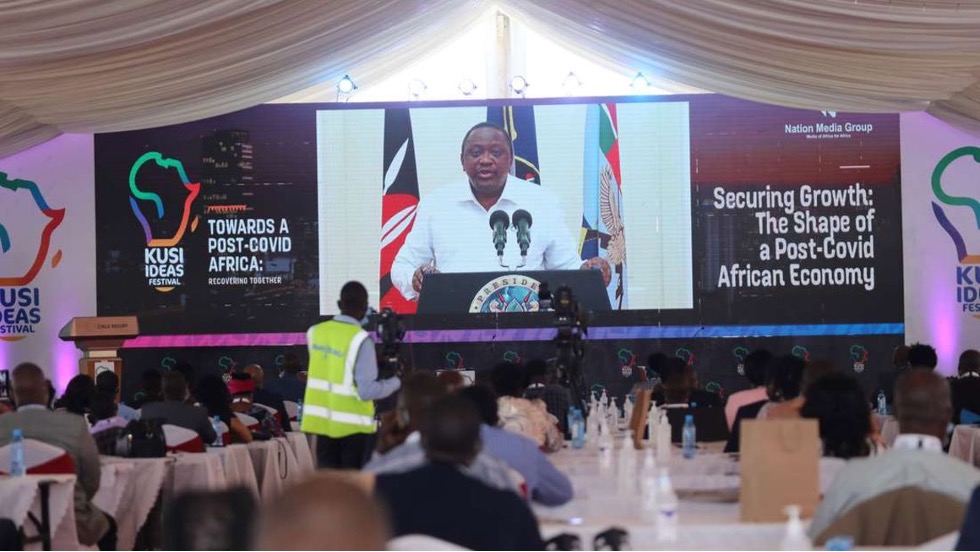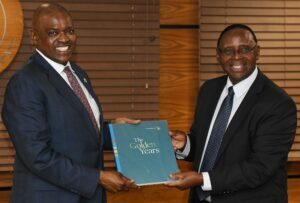Kenya’s President Uhuru Kenyatta addresseS the second edition of Kusi Ideas Festival at Ciala Resort in Kisumu County, western Kenya, on December 8, 2020. PHOTO | SILA KIPLAGAT | NMG
Increasing intra-African trade, innovation, and the blue economy will provide African economies a “fire exit” from ravages of Covid-19 pandemic.
These were some of the recommendations from the Kusi Ideas Festival, 2020 edition, held in Kenya’s Kisumu city last week. Others were, finding homegrown solutions to the region’s problems, use of data and science in decision making as well as tapping the continent’s youthful population.
Speakers identified agricultural, telecommunication and horticultural sectors as some of those that have thrived in spite of the pandemic, and more investments in these areas could provide the economies with the much needed silver lining to emerge from the crisis.
Rwandan President Paul Kagame said although the world had a bleak projection on how the continent would fare when the pandemic hit, it is emerging much better due to collaboration. Africa’s youthful population, resilience and past experience in handling pandemics also helped to soften the blow.
Dr Mukhisa Kituyi, the secretary general of the United Nations Conference on Trade and Development (Unctad) said that all the economic recovery plans on the continent should be embedded within the health recovery plans.
The other significant policy shift should be in global trade. The Unctad boss said whereas international trade declined by about 7 to 10 percent globally, the drop in Africa has been steeper at 25 percent to 35 percent (exports) and 17-25 per cent (imports).
Tremendous resilience
“Why is Kenya importing things it used to export? Is it not because the informal sector is not being treated as an engine for growth?” he asked.
The Kusi Ideas Festival, a brainchild of the Nation Media Group, explored the tremendous African resilience that has been on display, and looked ahead at how to emerge from the crisis.
Dr Kituyi also asked governments to de-risk start-ups, especially those in the digital economy, to allow them access credit. He also said governments must find ways to subsidise agriculture as part of the economic recovery plan.
On the Blue Economy, speakers pointed out the potential Lake Victoria has to transform the regional economies.
Dr Ally-Said Matano, the executive secretary of EAC’s Lake Victoria Basin Commission Secretariat said Agenda 2030 identifies the Blue Economy as one of the avenues that will promote sustainable development in the future.
“Blue Economy has previously only focused on oceans. But it is a water-based economy. Lake Victoria is the epicentre of regional integration,” Dr Matano said.
Frank Matsaert, the TradeMark East Africa chief executive said the lake can be a great avenue in unlocking the connectivity challenges. “We talk of an African market for African produce. However, a key cornerstone for that to happen is to have viable transportation to access other markets,” Mr Matsaert said.
While there is significant connectivity between Asia and Europe, the continent’s major trading partners, there is a negligible connectivity within Africa.




